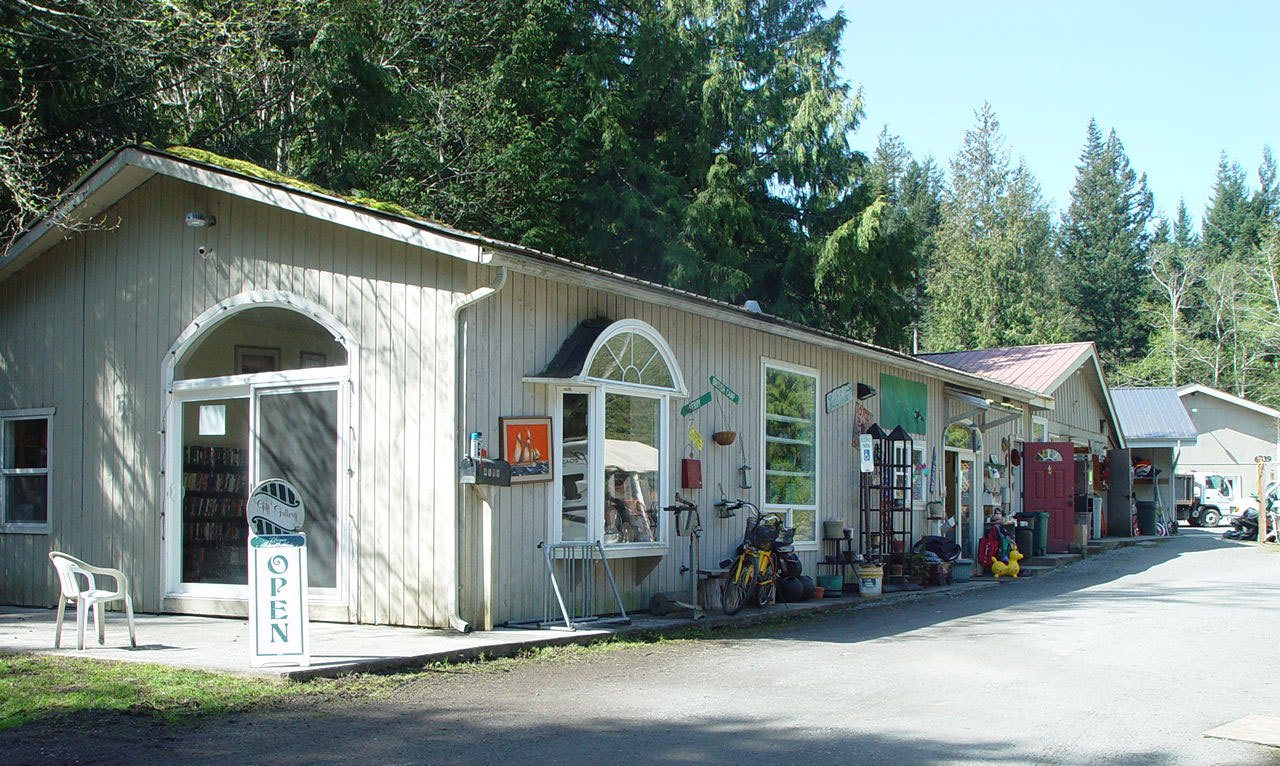(Correction: Previously, this article stated that “Penwell previously told The Journal he had purchased a total of four conditional use permits for the property paying $45,000 in permit fees.” The $45,000 was for permit fees, studies and other labor in 2012, only. The words “legal” and “illegal” were also changed to “conforming” and “nonconforming,” respectively.
This information was added to the article: Penwell told The Journal county officials have never suggested he complete applications or pay fees to make either change, which he has requested, at least twice a year, since 2008)
Community Treasures’ property has land-use designation issues, but maybe so do other parts of the county.
“We need to look at the bigger picture versus doing spot changes,” said Councilman Bill Watson at the Jan. 30 San Juan County Council meeting. “I think we want to figure out where we want to locate rural industrial and re-examine why The Corner Store [grocery] is still rural farm forest, and the cement factory is still rural farm forest, and the gravel pit is still rural farm forest.”
Council previously agreed to look at Community Treasures land-use designation as part of the 2018 county comprehensive plan update, but the property owner has recently made additional requests.
“I just think we should just do it as part of the comprehensive plan update,” said Councilman Jamie Stephens. “There’s a lot of, for lack of a better word, inconsistencies, in our land-use designation.”
Erika Shook, director of San Juan County Community Development, explained to council that the owner of Community Treasures’ property, Frank Penwell, recently wrote two letters to the county, requesting changes to allow the nonprofit to operate on its current land-use designation of rural farm forest.
The first letter asked for the property to be designated as an essential public facility and the second requested the county make a site-specific amendment to the county comprehensive plan. Shook said both steps require an application and fees, which she has not received. Penwell told The Journal county officials have never suggested he complete applications or pay fees to make either change, which he has requested, at least twice a year, since 2008.
Applications would enable the requests to be reviewed before the comprehensive plan update is completed by June 2018, said Shook. Reviewing the land-use designation as part of the comprehensive plan update does not require applications or fees. Any review of the property does not guarantee a land-use designation change, added Shook.
Shook said the application to determine an essential public facility is $400 and the conditional-use permit is $800. A site-specific comprehensive plan amendment application is $3,900, plus $95 for every hour spent over 40 hours to cover staff.
According to county code, an essential public facility “provides a necessary public service as its primary mission and that is difficult to site.” Neighbors don’t usually like to live by these sites, like dumps. At the meeting, Shook could not give the current count of essential public facilities in the county but said a review would be completed for the comprehensive plan update. Additional essential public facilities could be identified in this process.
Services like retail and outdoor storage are not permitted under Community Treasure’s current land-use designation, so the property owner has to buy conditional use permits to make those services conforming.
Currently, the county is not preventing any of the nonprofit’s operations.
“In fact, they have permits to operate that the county has granted,” said Shook.
Penwell previously told The Journal that the county planner in 2012 promised Penwell the property would be rezoned. Instead, said Penwell, county code was changed to allow Community Treasurer’s recycling services to be allowed on their land, while the retail and outdoor storage remained non-conforming, continuing the need for conditional-use permits.
Penwell previously told The Journal he has purchased a total of four conditional-use permits for the 5.6 acres. Penwell said he paid about $45,000, just in 2012, for permit fees, studies and other labor after the county imposed regulatory changes.
The land for the nonprofit thrift store and recycling center was originally designated for commercial use when purchased in 1978. The land-use designation was changed to rural farm forest the next year. New permits are needed when the use for a building changes or a building expands. County code states that rural farm forest “protect[s] rural, agriculture and timber areas from urban and suburban of development.”



